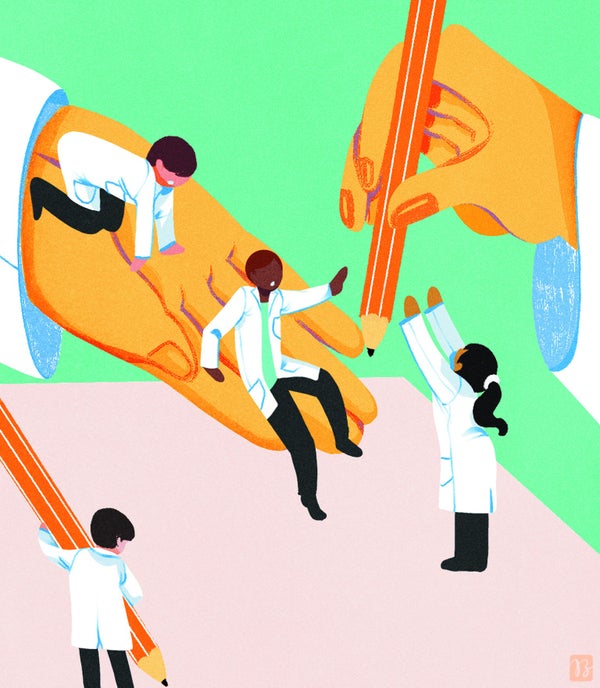One unanticipated consequence of the current pandemic is that many scientists are cutting one another some slack. Journal editors have become more relaxed about deadlines, funding agencies are granting extensions with little or no explanation needed, and universities have given graduate students more time—and in some cases even more funding—to finish their Ph.D.s. And many scholars are working productively from home relieved of the pressure to appear in person when the work does not actually require it. In a piece in Nature last April, Gemma Derrick, a senior lecturer in higher education at Lancaster University in England, wondered whether in the future such kindness might not be sustained. Derrick's scholarly work “focuses on building a kinder, gentler, more inclusive research culture by modifying one of its harshest processes, peer review,” and she proposes we use the “momentum of COVID-19” to “firmly embed kindness into research practice.”
In my experience, most scientists are gracious and generous most of the time. But it is also true that science is highly competitive, that the pressure to succeed is great, and that rude, inappropriate, discriminatory and even illegal behaviors may be excused on the grounds that the perpetrator is “a great scientist.” Too often we permit the alleged importance of our work to justify a neglect of basic human decency and compassion.
Being kind is viewed as secondary to being successful. One scientist I knew when I was an assistant professor told me that after she got tenure, she had to “learn how to be nice again.” (To her credit, she was by then actively engaged in mentoring younger women, myself included.) If we want to nurture talent, particularly among those who have been historically underrepresented in science and may therefore feel uncertain as to their place in the endeavor, it behooves us to consistently treat students and co-workers with dignity and respect. But research practice also refers to how we evaluate scientific claims at workshops and conferences and how we evaluate grant proposals or act as reviewers for papers submitted to professional journals. Here things get trickier. Because how do we know if a scientific claim is right? How do we know whether the methods a group has used are reasonable and have been applied with rigor? How do we know if the conceptualization behind a model reasonably reflects the real world?
On supporting science journalism
If you're enjoying this article, consider supporting our award-winning journalism by subscribing. By purchasing a subscription you are helping to ensure the future of impactful stories about the discoveries and ideas shaping our world today.
The answers to these questions rest heavily on the peer-review process and, more specifically, on the critical processes of vetting scientific claims that peer review entails. This occurs in a formal way when we sit on panels that review grant proposals or papers submitted by our colleagues for publication. It also occurs informally when we meet at conferences, departmental seminars and workshops and discuss research either before or after it has been published. Through these activities, scientists scrutinize one another's evidence and arguments, rejecting the ones that do not hold up.
We can think of peer review as a kind of sifting: not all false or erroneous claims are detected and rejected, but many are. Individual scientists do commit fraud and engage in sloppy and stupid practices, but peer review lets others point such problems out. Recent debates about p-hacking—that is, selectively reporting statistics favorable to an author's hypothesis—in science, particularly in psychology, prove the point: yes, many scientists have used statistics badly, but a vigorous debate has ensued, and remedies are being identified and applied. Philosopher of science Helen Longino of Stanford University has called this process “transformative interrogation”—transformative because it transforms a claim into knowledge and interrogation because it is not always gentle.
It hurts when a paper is rejected. It smarts when a reviewer says that a proposal is not sufficiently well thought through. But it is essential. Think of it as tough love: scientists take the time to review colleagues' work because they are committed to the production of reliable knowledge. If we are doling out criticism, we should try our best to do it as kindly as we can. But if we are on the receiving end, we need to dig deep and accept it, even (or especially) if it hurts. It is through taking and responding to criticism that we make our own work better and, with a bit of luck, find durable truths about the natural world.
